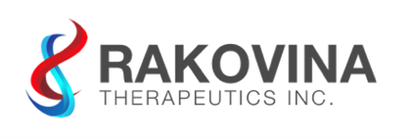Latest News
€250 million available to support healthy eating habits for European schoolchildren

 Reading Time: 2 minutes
Reading Time: 2 minutes
Millions of children across the EU will receive milk, fruit and vegetables under the EU’s School Scheme in 2019/2020. This programme reached over 20 million children across the EU during the school year 2017/2018.
The national budget allocations for the EU school fruit, vegetable and milk schemes for the 2019/2020 school year was adopted today. €145 million are set aside for fruit and vegetables, and €105 million for milk and other dairy products. The distribution programme is complemented by educational measures that teach children about agriculture and promotes healthy eating.
Agriculture and Rural Development Commissioner Phil Hogan said: “Thanks to the EU School Scheme, our young citizens can benefit from the nutritious, safe and high quality food that our European farmers produce, while also learning about where it comes from. The Commission is proud to contribute to this important educational journey, establishing healthy habits from a young age.”
The Commission also published today an evaluation report which shows that for the 2017/2018 school year, around 159,000 schools participated in the EU School Scheme. During that time, a total of 255,500 tonnes of fresh fruit and vegetables and 178 million litres of milk were distributed to European children thanks to more than €182 million from the EU budget.
Background
Countries wishing to take part in the EU school scheme must notify the Commission by the end of January with their request for support. The indicative allocation of the EU budget to each Member State is based on the number of schoolchildren in each country and, for milk, on the take-up of the previous scheme. National authorities are free to transfer a proportion (20%-25%) of the budget allocated from one sector to the other. They can also notify their willingness to spend more than the amount of aid requested if other Member States decline to take up their full allocation.
In addition, Member States can decide on the way to implement the scheme, including what agricultural products children will receive or the themes of the educational measures rolled out. They also have the option to top up EU funds with national funds to finance the scheme.
The choice of products distributed is based on health and environmental considerations, seasonality, variety and availability. Member States may encourage local or regional purchasing, organic products, short supply chains, environmental benefits, agricultural quality schemes.
Blockchain
Rakovina Strengthens Board with Appointments of Yevgeniy Meshcherekov and David Kideckel
Blockchain
PFM Disrupts Wealth Management in 2025: Earn Digital Assets Risk-Free with Zero Fees
Blockchain
Alpha Sigma Capital Research Publishes New Report on Bittensor (TAO), Decentralized “Neural Internet” Model
-

 Blockchain5 days ago
Blockchain5 days agoBlocks & Headlines: Today in Blockchain – April 24, 2025 (Decrypt, CoinDesk, Cointelegraph, 80 Level, UNDP/BGA)
-

 Blockchain6 days ago
Blockchain6 days agoBlocks & Headlines: Today in Blockchain – April 23, 2025 – EDPB, Binance, MicroCloud, Nile Coin, TruaBroker
-

 Blockchain4 days ago
Blockchain4 days agoBlocks & Headlines: Today in Blockchain – April 25, 2025 | BitNile, Dutch Blockchain Week, Citigroup, Philippine Blockchain Week, D.O.G.E Foundation
-

 Blockchain6 days ago
Blockchain6 days agoBlaqclouds Board Approves 30-Day Revenue Acceleration and Ecosystem Monetization Plan
-

 Blockchain Press Releases6 days ago
Blockchain Press Releases6 days ago10% Rebate: Bybit Card Introduces USDC Cashback
-

 Blockchain Press Releases5 days ago
Blockchain Press Releases5 days agoBybit Exchange Gold & FX Trading Hits All-Time-High As Gold Prices Soar
-

 Blockchain Press Releases7 days ago
Blockchain Press Releases7 days agoCompass Mining Partners with NiceHash to Provide Discounted Pool Fees to Customers
-

 Blockchain Press Releases6 days ago
Blockchain Press Releases6 days agoBlockchain for Good Alliance Launches Global Accelerator and Fund with UNDP













































